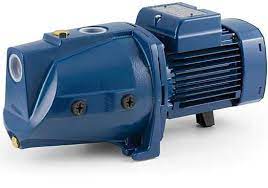Price of small water pumps in Ghana

Access to clean water is essential for good health and sanitation. In Ghana, many households and small farms rely on small water pumps to draw water from wells, boreholes, and other water sources. For Ghanaians looking to purchase a pump, being aware of the price range and factors affecting costs can help inform buying decisions. This article provides an overview of small water pump pricing in Ghana and delves into the key influences on pump prices.
Price of small water pumps in Ghana
Small water pumps for household and agricultural use in Ghana typically range from 300 to 3,000 GHS depending on pump capacity, brand, and features. Lower-priced models around 300-800 GHS include some manual and electric plastic pumps from brands like Suncdao and Dab. Mid-range prices of 800-2,000 GHS include more heavy duty piston and submersible pump options from trusted names like Grundfos and Pedrollo. Higher-end imported stainless steel and solar-powered pumps tend to cost 2,000-3,000 GHS.
Factors Affecting the price of small water pumps in Ghana
Pump Type
The cost varies significantly depending on the pump technology and mechanics. More complex piston, submersible, and solar-powered pumps will be more expensive than simpler manual and plastic models.
Pump Capacity
Higher water discharge capacities necessitate more advanced pump systems that require greater inputs of energy, materials, and engineering. Larger capacity pumps understandably cost more.
Build Materials
Pumps made from higher grade metals like stainless steel will carry a higher price tag than predominantly plastic models. Locally fabricated metal pumps also tend to cost less than imported steel pumps.
Brand Reputation
Established international water pump brands like Grundfos and Pedrollo command higher prices based on their reputation and perceived quality and reliability. Lesser known brands are more affordable.
Imported vs Local
Imported pumps from Europe, China, and India are generally more expensive than locally fabricated West African brands due to import duties and transportation costs.
Power Source
Pumps powered by fuel, electricity, and solar energy require additional components and infrastructure that raise costs compared to manual pumps.
- Advertisement -
Conclusion
The price that Ghanaians pay for small water pumps is influenced by a number of factors. While higher priced pumps from renowned brands may offer exceptional performance and durability, more affordable options from local manufacturers can also effectively serve household and small farm water needs. Considering these factors and life cycle costs can help buyers get the best value pump to suit their budget. With clean water access being so crucial, understanding Ghana’s small pump market and cost dynamics remains important for both consumers and policymakers alike.


